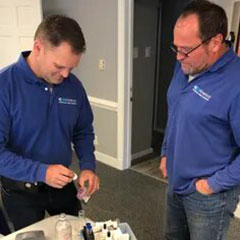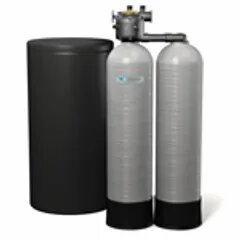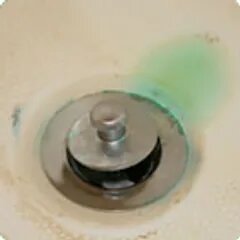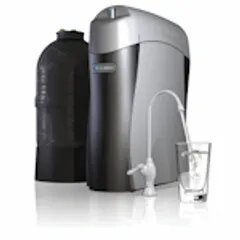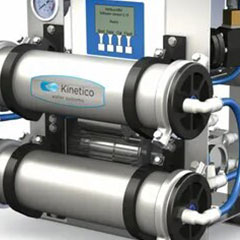The Importance of Water Testing
Water is one of our planet’s most precious resources, and access to clean and safe drinking water is a fundamental human right. Whether it’s for drinking, cooking, or other household needs, the quality of the water we use directly impacts our health and well-being. This is where water testing comes into play. In this blog, we’ll delve into the critical importance of water testing and why it’s essential to ensure the safety and quality of the water you consume.
Why is Water Testing Necessary?
- Health and Safety: The most significant reason for water testing is to protect the health and safety of you and your family. Contaminated water can contain harmful pathogens, chemicals, heavy metals, or pollutants that, when ingested, can lead to a range of health issues, from gastrointestinal problems to severe illnesses.
- Environmental Protection: Regular water testing is also crucial for protecting the environment. Monitoring water quality helps identify potential sources of pollution, allowing for corrective action to be taken before harm occurs to ecosystems and aquatic life.
- Legal Compliance: Many regions have regulations in place that require routine water testing for specific contaminants. Complying with these regulations ensures that your water supply meets safety standards and avoids potential legal issues.
Common Contaminants Detected Through Water Testing
Water testing can identify a wide range of contaminants, including:
- Bacteria and Pathogens: Testing can reveal the presence of harmful bacteria like E. coli and pathogens that can cause waterborne diseases.
- Chemical Contaminants: These include pesticides, heavy metals (e.g., lead, arsenic, mercury), and industrial chemicals (e.g., PCBs).
- Nitrates and Nitrites: Elevated levels of these compounds can indicate agricultural runoff or septic system problems.
- Volatile Organic Compounds (VOCs): These are often found in groundwater and can originate from industrial processes, fuel leaks, or chemical spills.
- Radon: A naturally occurring radioactive gas, can leach into groundwater and become a health hazard when ingested through water.
When Should You Test Your Water?
- New Water Source: If you’re using water from a new well or source, it’s essential to test it for contaminants before consumption.
- Regular Routine Testing: Even if your water source has been deemed safe in the past, it’s a good practice to conduct routine testing at least once a year to ensure ongoing water quality.
- After Plumbing Work: After significant plumbing work or repairs, especially if you’ve had issues like leaks or pipe corrosion, it’s wise to test your water for any potential contaminants that may have entered the system.
- Change in Water Taste, Color, or Odor: If you notice any changes in the taste, color, or odor of your water, it’s a clear sign that something may be amiss, and testing is warranted.
- Pregnancy or Newborns: Pregnant women and families with newborns should consider water testing to ensure the water they use is safe for both maternal and infant health.
Benefits of Regular Water Testing
- Early Detection: Regular testing allows for the early detection of contaminants, helping to address potential issues before they become serious health hazards.
- Peace of Mind: Knowing that your water is safe and clean provides peace of mind and confidence in the quality of the water your family consumes.
- Preventive Measures: Water testing can identify potential sources of contamination, enabling homeowners to take preventive measures to protect their water supply.
- Compliance: Testing ensures that you comply with local regulations and standards, reducing the risk of legal and regulatory issues.
Professional Water Testing
It’s crucial to emphasize that water testing should always be conducted by professionals who have the knowledge, experience, and proper equipment to perform accurate and reliable tests. Attempting to test water on your own can lead to inaccurate results and may not cover all potential contaminants.
When you hire a certified water testing service, you can expect the following:
- Comprehensive Testing: Professional testing covers a wide range of contaminants to provide a thorough assessment of your water quality.
- Accurate Results: Certified labs have strict quality control measures in place to ensure the accuracy of results.
- Expert Guidance: Professionals can interpret the test results and provide guidance on any necessary corrective actions.
- Customized Solutions: If contaminants are detected, professionals can recommend appropriate water treatment systems tailored to your specific needs.
Conclusion
Water testing is an essential practice for safeguarding the health and well-being of you and your loved ones. Regular testing ensures that your water is free from harmful contaminants and meets safety standards. Remember, professional water testing is the most reliable way to get accurate results and expert guidance on maintaining the quality and safety of your water supply. By investing in water testing, you are taking a proactive step towards ensuring clean, safe, and healthy water for your home.
Advanced Water Systems – Kinetico Richmond https://kineticorichmond.com/

